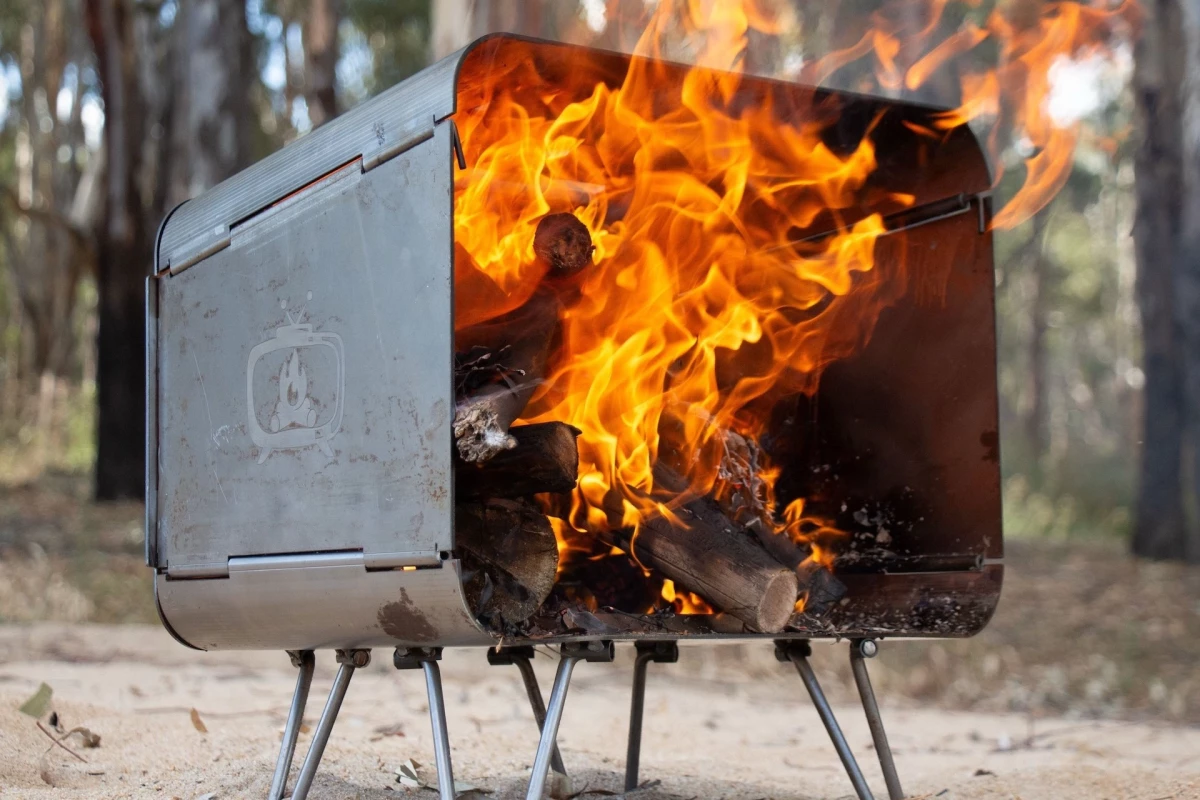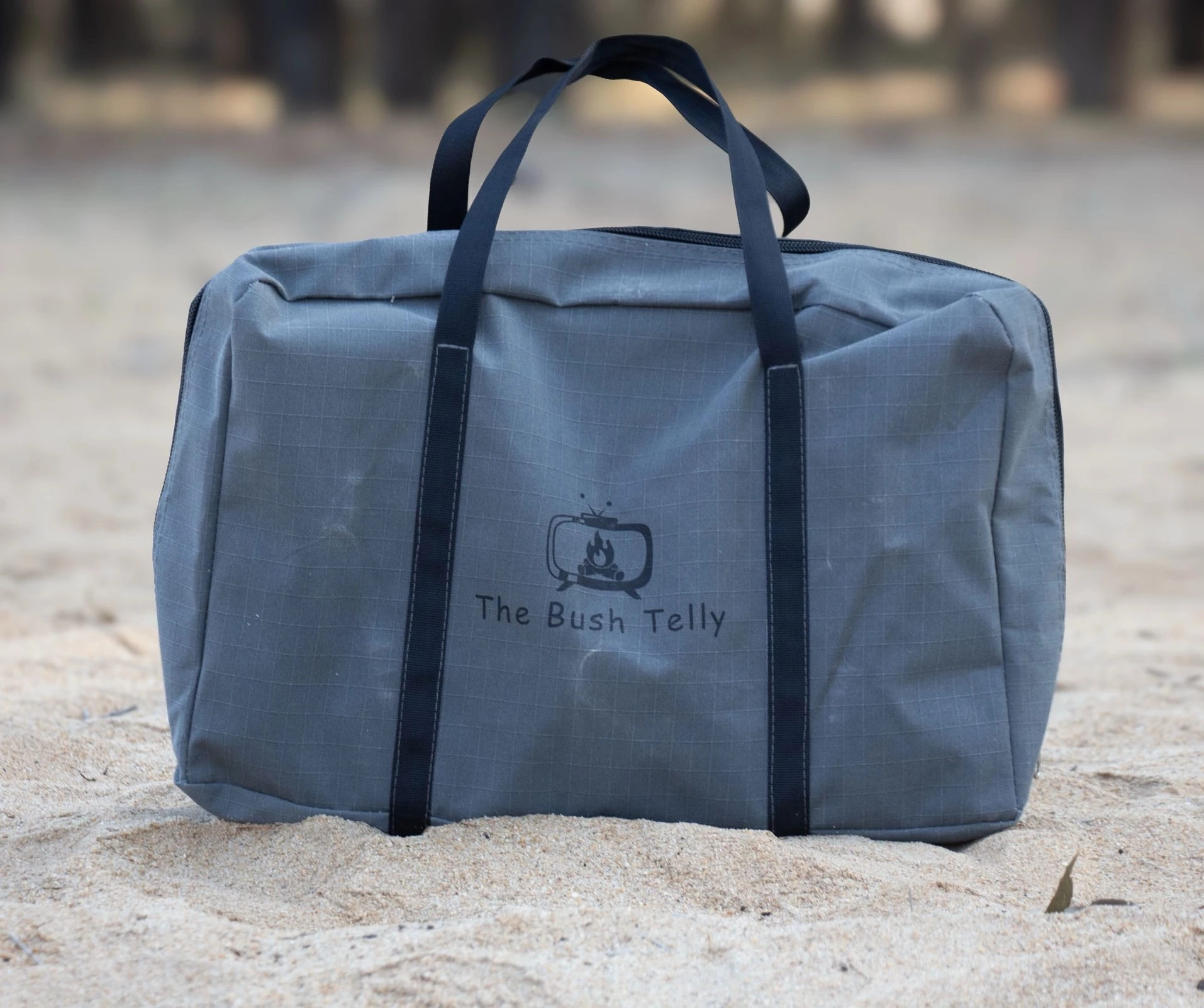The expression bush telly is low-key Australian slang for a campfire – in fact, for whatever you’d look at on an evening when you’re sleeping in the countryside and without a TV. I’ve always thought of the usage as somewhat ironic – implicit recognition that when we travel, we don’t leave our habits behind.
My first thought when I saw the Bush Telly fire pit was that its producer had gotten the marketing wrong, adopting the expression but ditching the irony. It was as though this were a product for someone (ancient) who could barely live without a TV.
A day later, I was wondering whether instead it was clever. If you’ve set up a campfire, there’s every chance you’ll spend hours staring into it. And the name highlights this fire pit’s key feature: it puts the picture inside a frame at the front.
It’s a simple enough concept – essentially a wood-fueled space-heater without the flue and the glass, neither of which is needed when the stars are your ceiling.
The Bush Telly is made from powder-coated mild steel, and its 18 kg (40 lb) of paneling can be folded flat and slipped into a carry-bag.
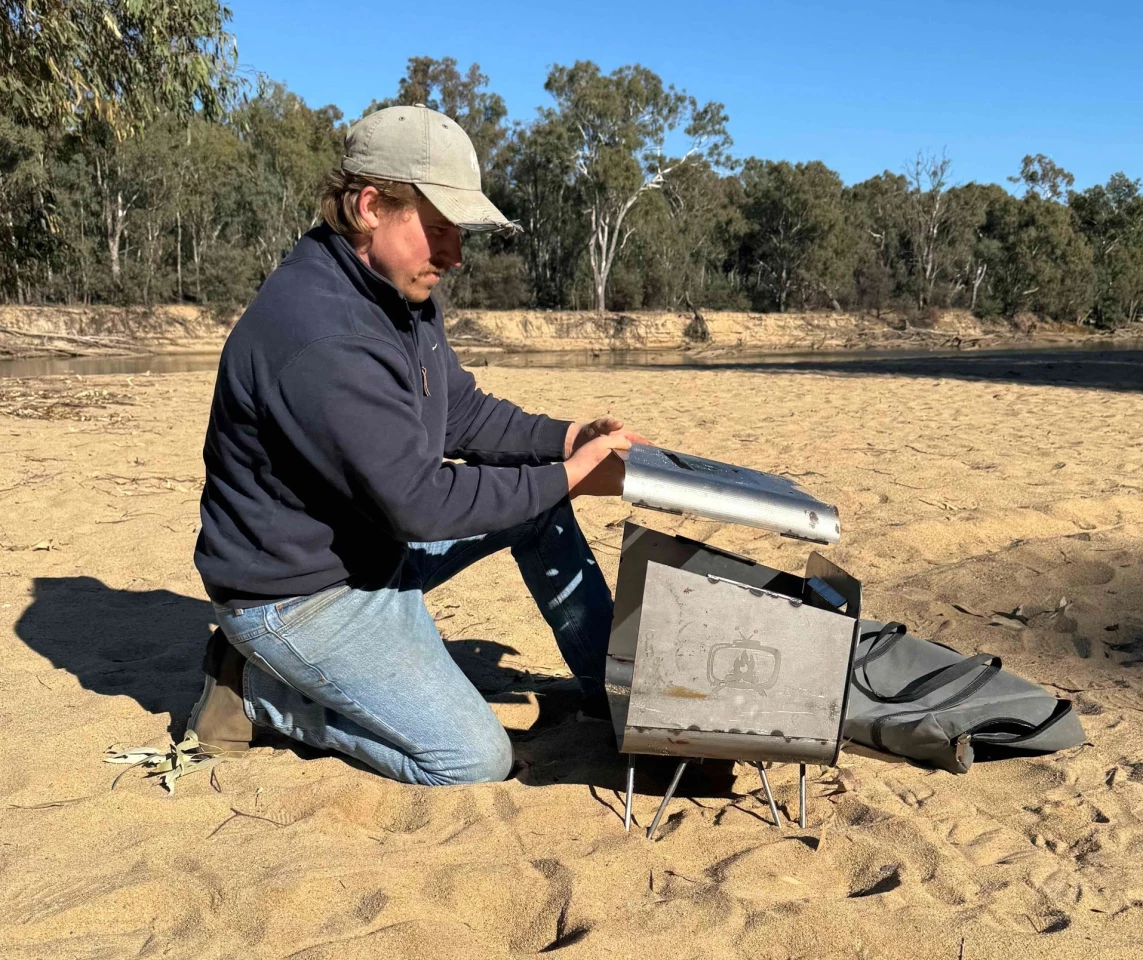
Beyond its resemblance to a cathode-ray tube television set, it is said to have functional benefits over open fire pits and camp stoves.
The former send much of the heat they generate directly upwards, where it doesn’t do much to warm people at ground level. The Bush Telly will still radiate heat from its sides, but its semi-enclosed design pushes more out the front.
If you’ve ever started a campfire, you’ll know they’re harder to get going than you may have imagined, and also harder to keep going if you don’t have a big stock of dry fuel.
The Bush Telly is claimed to burn better than an open-pit fire, and that claim too is not hard to credit.
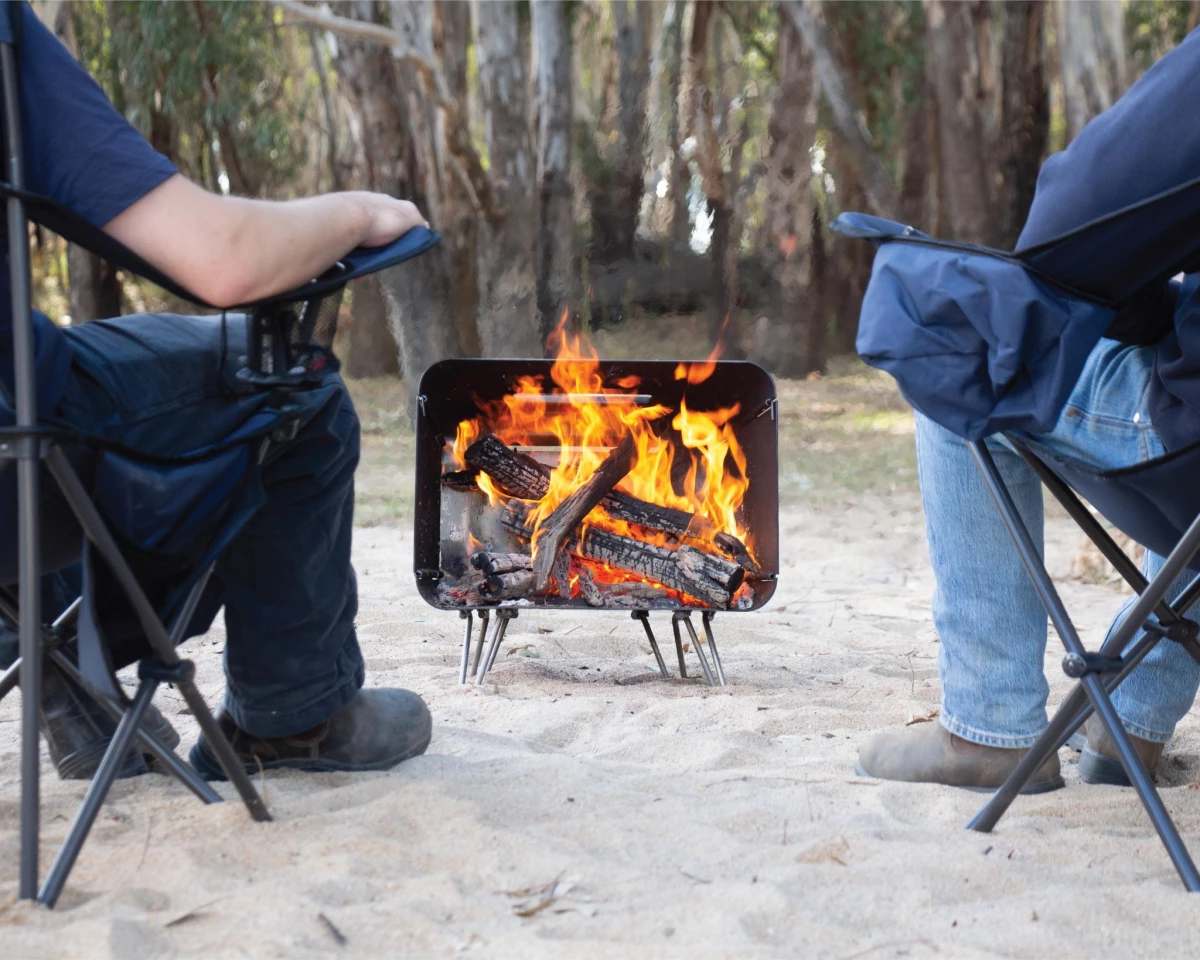
It stands on short stainless-steel legs, and like most portable fire pits it has a slotted floor that lets oxygen in. The steel sides reflect heat back into the wood that you’re seeking to burn, helping keep the fire hot enough to sustain its combustion.
More slots at the rear and top promote a through-draft, and of course there’s plenty of room for exhaust air to escape out the front. The top is angled to encourage convection.
Do you want to cook on your campfire? In that case you’ll need the optional cooktop, a stainless steel hotplate that sits flat on a spacer above the slots in the top.
Thus configured, the Bush Telly works much like an enclosed wood-fueled camp stove. Except that its open front lets you look at the flames.
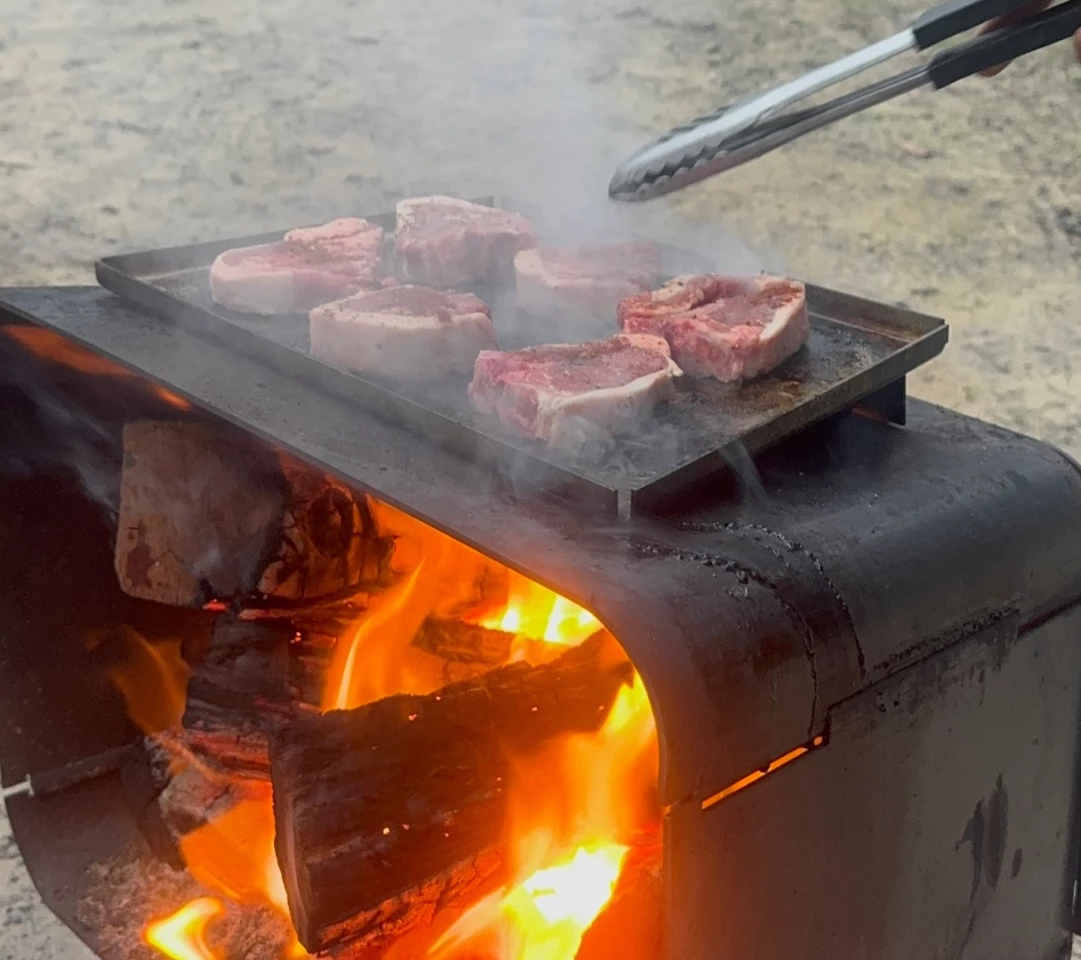
Promotional videos show the fire pit with just one or two people, and crowd size is an obvious limitation of the design. One which helps explain why most fire pits are open-sided. It looks like a couple of couples could warm themselves around a Bush Telly, or a couple with two to four children. More than that and some might feel pushed out.
Plus there’s no room in there for that big log that will burn half the night and smolder into the small hours. The enclosure measures half a meter (20 in) wide and 33 cm (13 in) deep, which is enough space to generate plenty of heat provided you cut your fuel down to size.
At 41 x 27 cm (16 x 11 in), the cooktop too is a small-group affair. But then couples and small families are likely a big part of the camp fire pit market.
The fire pit’s founder, an Australian industrial designer who introduces himself only as Nic, says the Bush Telly is his first private effort but it won’t be his last. “I want to create products that fully enhance the camping experience and that will last a lifetime," he says.
The successful Kickstarter campaign wrapped up last week, but you can still get special preorder pricing via the Bush Telly web shop. The basic Bush Telly is available to preorder for AU$329 (approx. US$215), AU$30 off the MSRP, while the bundle with cooktop can be had for AU$428 (US$280), AU$40 off the planned retail. Import provisions recently imposed by the US have led Nic to limit his launch to Australia. Delivery of the first units is due in December, assuming all goes to plan.
Source: Kickstarter
